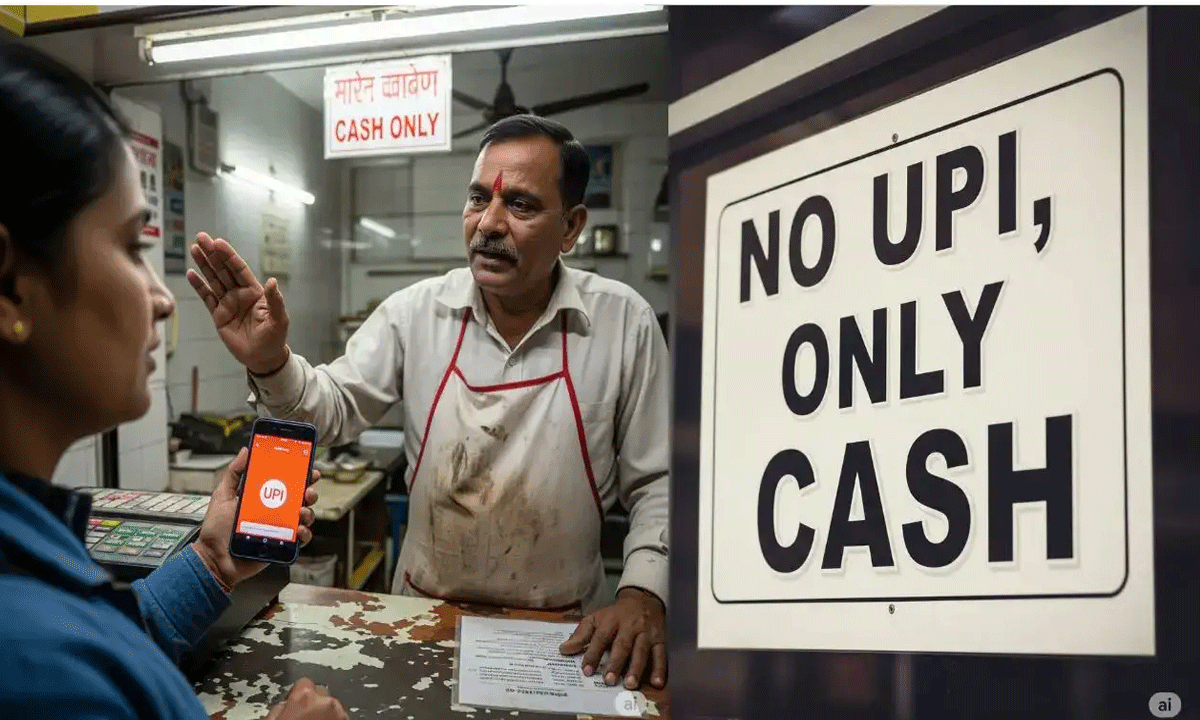UPI Out, Cash In: Bengaluru Street Sellers React to GST Notices with Payment Shift
Once known as a hub for digital payments, Bengaluru is witnessing a growing shift back to cash transactions, particularly among small vendors and street hawkers.

Bengaluru: Once known as a hub for digital payments, Bengaluru is witnessing a growing shift back to cash transactions, particularly among small vendors and street hawkers. The reason? A rising fear of GST (Goods and Services Tax) notices and increased scrutiny from tax officials.
Table of Contents
“No UPI, Cash Only” Boards Replace QR Codes
Across the city, QR codes at small shops and street stalls are being taken down and replaced with handwritten signs reading “No UPI, Cash Only”. Vendors say digital payments have brought them under the GST department’s radar, prompting them to go offline to avoid notices and penalties.
Also Read: Pratika fined 10 pc match fee, England penalised for slow over-rate
“I make around ₹3,000 a day with minimal profit. UPI payments are no longer an option,” said Shankar, a small shop owner in Horamavu.
Thousands of Informal Vendors Receive GST Notices
According to lawyers, chartered accountants, and vendor associations, thousands of informal businesses in Bengaluru—including roadside food stalls, pushcarts, and footpath vendors—have received GST notices. In some cases, the demand amounts run into lakhs of rupees.
Vinay K. Srinivas, joint secretary of Bengaluru Street Vendors Federation and a lawyer, stated that many vendors now fear harassment by tax and municipal officials if they continue using UPI. Some even worry about eviction by municipal corporations for non-compliance.
GST Thresholds and Compliance Rules Explained
As per current GST regulations:
- Vendors supplying goods with annual turnover exceeding ₹40 lakh must register and pay GST.
- Service providers with turnover above ₹20 lakh are also required to come under GST compliance.
The Commercial Tax Department clarified that only vendors exceeding these thresholds through UPI-based turnover from 2021–22 onwards are receiving notices. Authorities advise such businesses to register officially and pay necessary taxes.
Trend Could Spread Beyond Bengaluru
According to Srinivasan Ramakrishna, a chartered accountant from Srini & Associates, this trend may not remain limited to Bengaluru. If GST revenue from unregistered businesses grows significantly, other states may adopt similar enforcement strategies.
He added that GST authorities in Mumbai have already started monitoring high-volume street food vendors like chaat sellers. Bringing such businesses into the GST net could generate substantial revenue for state governments.
